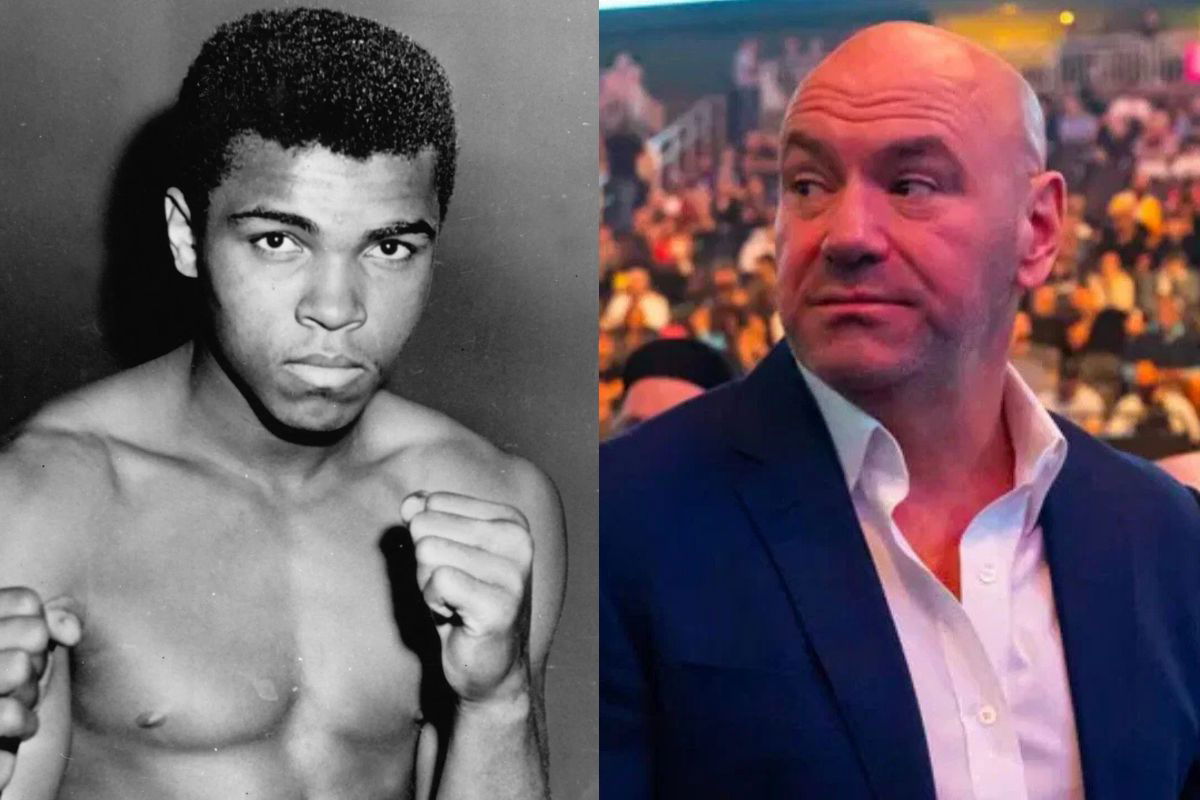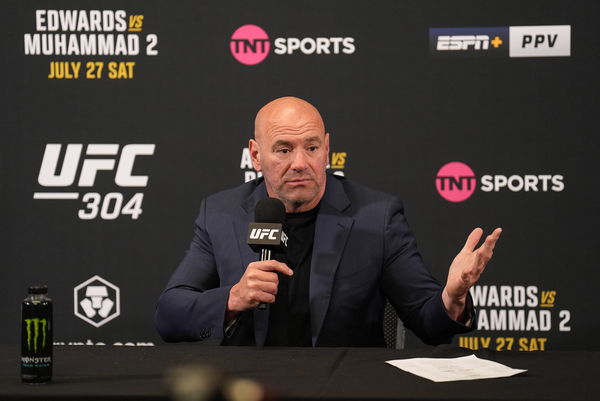
Imago
Credits: IMAGO

Imago
Credits: IMAGO
Make your pick of the color. In the chessboard of boxing, as ranks close in, Dana White and his knights at Zuffa Boxing have made yet another move that brings them closer to the other side, in this case, implementing the proposed ‘Muhammad Ali American Boxing Revival Act’. Joining the broader churn in boxing, particularly the ongoing shift away from linear viewing and the pay-per-view model, the proposed amendments to the 1996 Professional Boxing Safety Act, introduced in July this year by Representatives Brian Jack and Sharice Davids, have dominated the narrative. Both supporters and critics take firm positions along the fence.
Watch What’s Trending Now!
However, the saga has now taken a fresh turn. The California State Athletic Commission (CSAC) has announced its unanimous endorsement of the TKO-backed amendments. The regulatory body convened a meeting on Wednesday morning, where the new ‘Muhammad Ali American Boxing Revival Act’ received a 6–0 vote. Barbs and jabs immediately followed. However, with Dana White‘s new boxing promotion, Zuffa, partnering with Paramount to potentially feature 12 shows per year, it marks a significant move that could reshape the boxing landscape in the years to come.
ADVERTISEMENT
All for one: CSAC throws its weight behind Dana White
Eminent MMA writer Damon Martin tweeted, “The California State Athletic Commission votes unanimously 6-0 to support the adoption of the Muhammad Ali American Revival Act. Another domino down as Zuffa Boxing gets closer to an official launch in 2026.” Lasting nearly two hours, the session saw over 90 public participants, nearly 32 of whom shared their views—a sharp contrast to what occurred last month.
The California State Athletic Commission votes unanimously 6-0 to support the adoption of the Muhammad Ali American Revival Act.
Another domino down as Zuffa Boxing gets closer to an official launch in 2026. #UFC #Boxing
— Damon Martin (@DamonMartin) October 15, 2025
The CSAC meeting on September 8 faced overwhelming disapproval. Reportedly, 12 public speakers scrutinized and denounced what they viewed as a potential monopolization by Zuffa Boxing. Given UFC’s dominant control over mixed martial arts, many worry that a similar atmosphere could take hold in boxing.
ADVERTISEMENT
For the record, the meeting does not mean the Revival Act has become law. It remains a proposed bill. It still has to undergo comprehensive reviews by the House Committee on Energy and Commerce, the House of Representatives, and the Senate.
Top Stories
Miami PD and U.S. Marshals Launch Manhunt for Gervonta Davis After Arrest Warrant Issued

“Rest in Peace, My Champ”: Evander Holyfield Joins Boxing World in Mourning Sugar Ray Leonard’s Personal Loss

Jake Paul Trolled After Private Jet Dig at Floyd Mayweather Resurfaces: “This Is Why AJ Broke His Jaw”

Diddy’s Last-Ditch Donald Trump Pardon Plea Takes Unexpected Mike Tyson Turn

“If That Was My Son…”: John Fury Cautions Anthony Joshua in Emotional Plea After Car Crash

The CSAC’s decision comes at a crucial juncture, when the year is nearing its end. The Zuffa-Paramount partnership is scheduled to kick off in January of the new year.
ADVERTISEMENT
No tweaks, no turns, no trouble
One of Dana White’s most vocal critics, Oscar De La Hoya, had earlier slammed the revival measure: “As TKO prepares to enter the boxing space, the first thing they want to do is change [the Ali] Act and leave fighters vulnerable. TKO needs this to change so they can implement the exact same unethical business tactics in boxing that they used to create a monopoly with the UFC.”
However, in his latest appearance on the 3 Knockdown Rule podcast, the UFC president clarified his stance. His vision for boxing remains ‘to build the sport back up from the ground up’ and ‘turn it into a business like the UFC.’
ADVERTISEMENT
However, the journey toward those goals would not involve any ambiguous rule changes. “Not one word is going to be changed. Not one thing. There’s just going to be an add-on to the Muhammad Ali Act. And you can; if you’re a fighter, you can stay exactly the way it is now, or you can come bet on me and come and fight in our organization, and you know, there’s going to be plenty of options,” Dana White stated.
Fighters would still have the freedom to work under promoters like Frank Warren or Eddie Hearn, as they do now. So, where exactly lies the problem?
ADVERTISEMENT
If it’s all add-ons, why the alarm bells?
The revival act boasts some positive features, such as a minimum payment of $150 per round, $25,000 in health coverage, and mandatory checks, which, apart from the doping tests, will include MRIs, EKGs, and pregnancy checks. Still, what worries most observers is the lack of clarity around the Unified Boxing Organizations (UBOs).

Imago
UFC CEO DANA WHITE with post event media during the UFC 304 event at Co-op Etihad Campus, SportCity, Manchester, England on the 27 July 2024. Copyright: xAndyxRowlandx PMI-6350-0002
Much like the UFC’s management of its roster, Zuffa would reportedly handle everything from event promotion to fighter rankings, titles, and belts. In contrast, traditional boxing divides these responsibilities. There are multiple sanctioning bodies and promoters allowing fighters to choose freely. If realized, the UBO framework might quietly redraw the lines of control in boxing.
ADVERTISEMENT
Dana White’s recent comments further fueled speculation. In an exclusive interview with Max Kellerman, he spoke about creating a Zuffa Belt. Additionally, he hinted at not recognizing titles from other sanctioning bodies such as the WBC, WBO, WBA, and IBF. “There will be a ZUFFA belt, and then there will be a ring belt, and yes, I will not recognize any of the other sanctioning bodies,” he said.
Nick Khan, president of WWE, one of UFC and Zuffa Boxing’s sister companies under TKO, thanked the CSAC for its support. He allayed fears about the changes to the Ali Act. Still, criticism continues to pour in. Many warn that the proposed amendments could undermine the protections the act currently provides to boxers.
With the CSAC’s endorsement, where do you think the TKO-backed Revival Act heads next?
ADVERTISEMENT
ADVERTISEMENT
ADVERTISEMENT
ADVERTISEMENT

